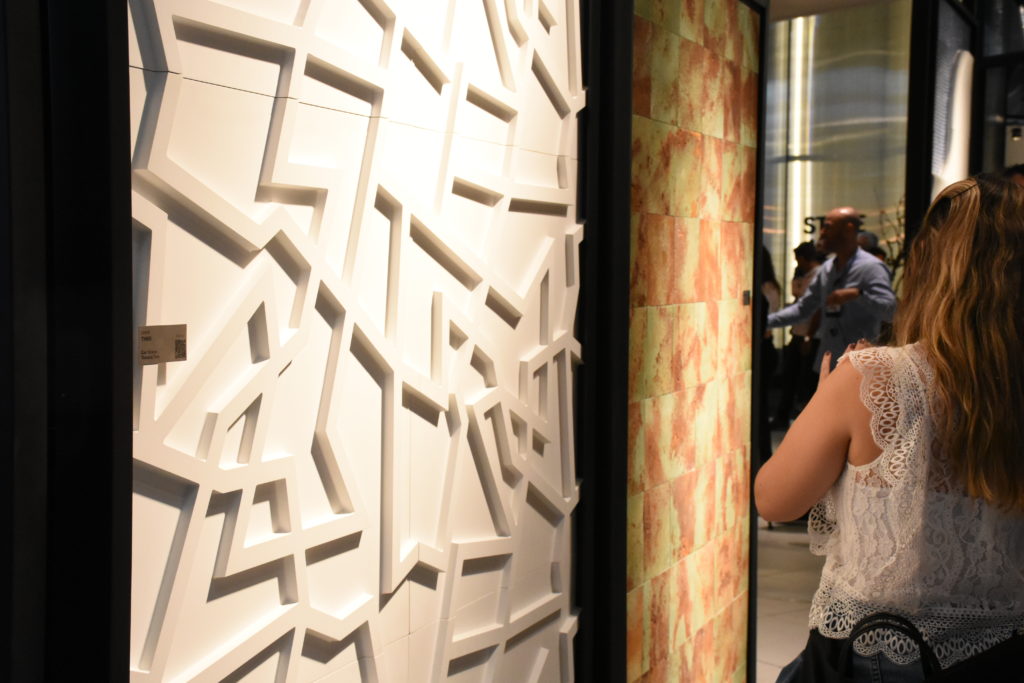São Paulo – Officials from the Saudi Standards, Metrology, and Quality Organization (SASO), the primary regulatory entity for exports to Saudi Arabia, participated in a virtual workshop with Brazilian entrepreneurs in the ceramics and tiling sector interested in selling to the Saudi market. The event was hosted by the Arab Brazilian Chamber of Commerce (ABCC), in partnership with the Brazilian Association of Manufacturers of Ceramic Tiles, Sanitary Ware, and Related Products (ANFACER).
Three Saudi SASO representatives spoke about the regulations and platforms. Khaled Alfaiti addressed the Quality Mark platform. “The Saudi Quality Mark (SQM) indicates that the company has an effective management system that assures product compliance with Saudi regulations, product concession procedures, and standards,” he said.
According to Alfaiti, the advantages of obtaining the SQM are continuous improvement and development, consumer guidance on products that meet the standards, ease of entry at ports and customs, and growth in sales. Certification is free and valid for three years. Several documents are required; for further information, Alfaiti mentioned the SASO website.
Mohammed Alotaibi focused on the Product Safety Program; its purpose is to protect public health and safety, assessing and preventing risks arising from the introduction of unsafe products in the country, whether produced locally or imported. Hence, they protect the national industry and support the domestic economy, improving the quality of infrastructure and maintaining the health and safety of consumers and the environment. The Saudi market, according to Alotaibi, imports 90% of its products and has 25,000 registered importers.
Abdullah Alsmair covered the Saber platform, an integrated digital service that allows entrepreneurs to register their company and product data in the system, whether the product was manufactured locally or imported, and obtain the required certificates of conformity. The platform aims to improve the experience of importing and obtaining certificates, ensuring the safety of products available on the market, and contributing to the improvement of Saudi Arabia’s position in cross-border trade. For further information about the Saber platform, Alsmair informed the email ecare@saber.sa and Saber’s Twitter.
“Brazilian products are more than welcome in the Saudi market; we are always looking for cooperation,” said Alsmair.
This workshop was the first of a series of actions that the ABCC intends to carry out alongside SASO to guide Brazilian companies on the Saudi market. The workshop “Technical regulation for the export of ceramic tiling sector products to Saudi Arabia” was mediated by the Institutional Relations manager at the ABCC, Fernanda Baltazar.
“I hope this is the first of many events to help place Brazilian products from various sectors in Saudi Arabia, which is Brazil’s most important trade partner among the 22 Arab countries. The Vision 2030 program brings many opportunities for the construction sector, and this type of event can help to clarify doubts,” said the secretary-general at the ABCC, Tamer Mansour. “May this be the beginning of a prosperous partnership between Brazil and Saudi Arabia in this sector,” completed Maurício Borges, CEO of ANFACER, representing the organization at the event.
“We are excited to work with Brazilian ceramic companies, provide an overview and clarify the platforms, and facilitate business for the entry of Brazilian products into the Saudi market,” said Saad Alhatem, general director of SASO, who also attended the workshop.
Translated by Elúsio Brasileiro




